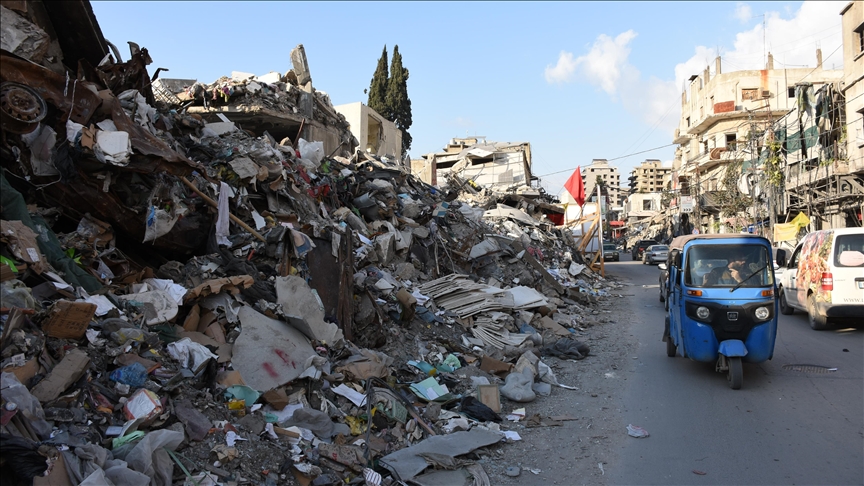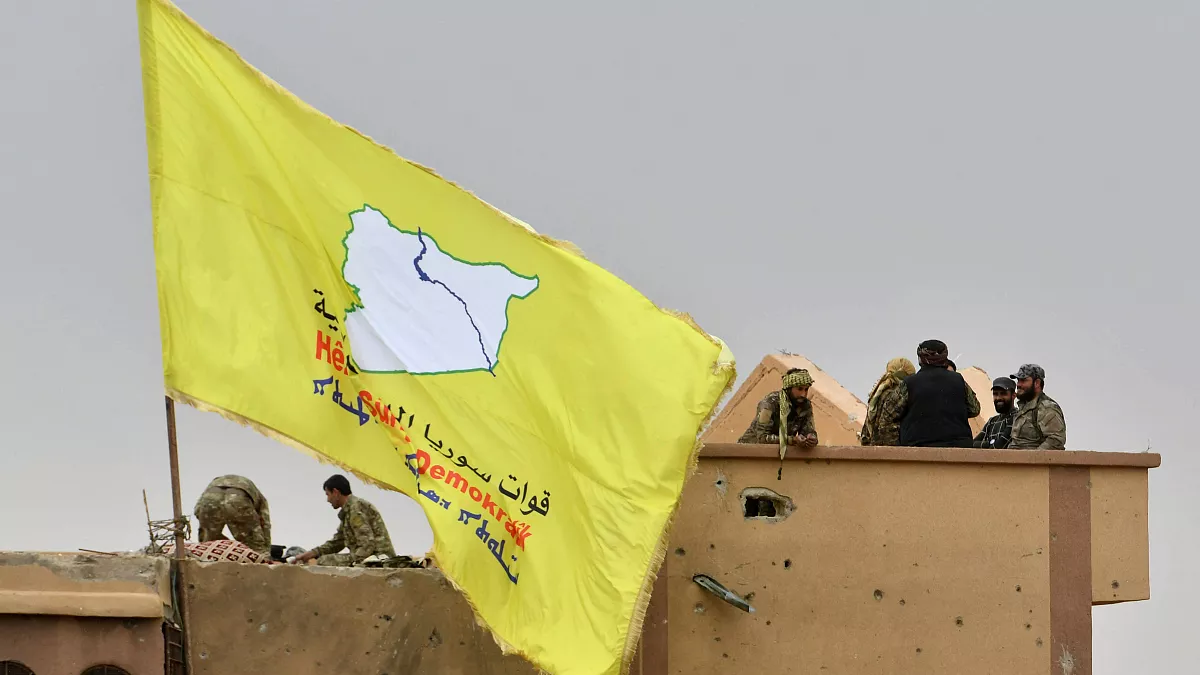Russian arms exports have plummeted by 92% since 2021, according to defence policy expert Pavel Luzin, as the Kremlin redirects all its military production to supplying the conflict in Ukraine.
Industry analysts warn that the sector’s long-term health hinges on a swift conclusion of the war in Ukraine and is putting pressure on Russian President Vladimir Putin to start ceasefire talks with Kyiv.
Arms exports used to be the second biggest export product after oil, but revenue from the sale of Russian arms will plummet to under $1bn by the end of 2024, Luzin, a lecturer at the Fletcher School of Law and Diplomacy, Tufts University, speaking at the "Country and World: Russian Realities 2024" conference in Berlin said at the end of November. This marks a sharp fall from $14.6bn in 2021, $8bn in 2022, and $3bn in 2023.
The Stockholm International Peace Research Institute (SIPRI) reported that Russia fell to third place in global arms exports in 2023, overtaken by the United States and France. This comes after a sustained decline in Russia’s defence exports, which halved between 2014 and 2018. By 2023, Russia was supplying weapons to only 12 countries, compared to 31 in 2019, illustrating its shrinking influence in the global arms trade.
The state-owned defence conglomerate Rostec CEO Sergei Chemezov recently confirmed that Russian arms sales were valued at $15bn in 2021 but fell to $7bn in 2022 and $6bn in 2023. Figures for 2024 have yet to be released, but industry forecasts predict an even steeper decline.
“We see that Russia as an arms exporter has generally failed,” Luzin said, attributing the drop to sanctions, disrupted logistics, and waning client confidence.
The falling exports undermine Russia’s relations with its partners in the Global South, which rely on cheap but sophisticated weapons in their own security arrangements. One of the topics on the agenda during Indian Prime Minister Narendra Modi’s meeting with Putin in July was the delayed delivery of Russia’s advanced S-400 surface to air missile defence system that India ordered and wants to protect its northern borders with China and Pakistan.
Satellite photos posted online by Russian military bloggers (milbloggers) show that the stocks of Soviet-era tanks and APC, among other equipment, are nearly empty. The Kremlin has been forced to turn to allies like North Korea and Iran to top up its supplies of missiles, shells and drones.
Shortages make ceasefire talks more likely
Putin quickly put Russia’s economy on a war footing following invasion in February 2022 and output of arms and ammo soared. However, that has left little over to meeting Russia’s export obligations.
Despite heavy investment in the military industrial complex, the output has not been able to meet demand and Russia has been running down in its military stocks much faster than they can be replenished.
Ukraine is also desperately short of materiel and entirely dependent on Western allies for supplies. Ukraine does not have the resources to reclaim occupied Crimea and Donbas by military means, so it is counting on diplomacy – Zelenskiy said on December 18 in Brussels.
"The Russians now control these territories. We do not have the strength to reclaim them. We can only count on diplomatic pressure from the international community to force Putin to sit at the negotiating table."
Both armies are running low and as the war enters its end game, with widespread speculation that the incoming President-elect Donald Trump will bring the fighting to an end, it is hoped that Putin will be forced to make some compromises and offer a “just peace.”
"Real negotiations for a lasting peace will begin only when the enemy no longer has the resources to continue the war," head of Ukraine’s presidential office, Andriy Yermak told the Congress of Local and Regional Authorities in Lviv on December 19, as cited by Radio Free Europe/Radio Liberty.
Russia intends to win the war in 2025
In lieu of a deal, the Kremlin is preparing for a protracted war and getting ready to rebuild its military might. In September, the Kremlin launched a long-term military reconstitution programme aimed at restoring the losses incurred during its full-scale invasion of Ukraine.
“It is clear that the military-industrial complex is counting on a halt, a freeze, an end to the war in order to return to fulfilling export contracts… because they provided a good inflow of hard currency,” Luzin said.
Putin has already increased the upper limit of men under arms to 1.5mn on September 16 from 1mn previously, but the biggest challenge will be to equip them and replace the materiel already used over the last two years of war – and pay for it.
Russia plans to continue the war until it fully occupies four annexed regions in 2025, Russian Defence Minister Andrei Belousov said on December 17 at a meeting with senior defence ministry officials. According to Belousov only 1% of the territory of Luhansk and 25-30% of the territory of the Donetsk, Zaporizhzhia and Kherson regions remain under the control of the Armed Forces of Ukraine (AFU),
He said that Moscow intends to fully seize the Donetsk, Luhansk, Kherson, and Zaporizhzhia regions of Ukraine in the new year and that Russia will achieve "the goals announced by President Putin in June," adding: "In 2025, Moscow plans to win the war."
Moscow is not satisfied with current proposals to freeze the war, so Russian troops will continue to fight if Ukraine does not agree to Putin's conditions, Russia's UN representative, Vasily Nebenzia, said at a Security Council meeting the same day.
At the defence ministry meeting Belousov also raised the possibility of a conflict between Russia and Nato breaking out for the first time that could happen sometime in the coming years.
Belousov said that the Kremlin is also against any Nato participation in ending the war, as talk of Nato peacekeepers in Ukraine goes from “unthinkable” to “discussed”.
On June 14, Putin said that Russia would agree to a ceasefire and peace talks only if Ukraine withdrew from four Ukrainian regions and formally abandoned its aspirations to join Nato. The demands also included recognition of Crimea and Sevastopol as part of Russia. More recently leaked comments from the Kremlin suggest there is some wiggle room in the proposed negotiations and the Kremlin is prepared to offer “limited” territorial concessions, Reuters reported in November.
Europe is as unprepared for a direct conflict with Russia, but, as bne IntelliNews reported, has a much more serious shortfall of arms and productive capacity after decades of underinvestment. With the leading EU members wracked by budget crises, it also has a lot less money to spend on rearming. Germany, in particular, which has the second largest army in Europe on paper, will not be able to return to pre-war levels of armament for decades.
LA REVUE GAUCHE - Left Comment: Search results for PERMANENT ARMS ECONOMY











